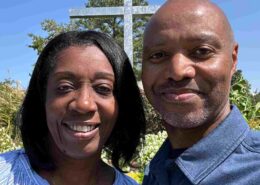The History of Ordination and Its Modern Expression Through Christian Leaders Alliance
Historical Roots of Ordination
The concept of ordination has deep historical and theological roots, stemming from practices established in the Bible and developed throughout church history. The term “ordination” derives from the Latin word ordinare, meaning “to set in order” or “to appoint.” In both the Old and New Testaments, ordination refers to the process of selecting and commissioning individuals for specific roles in spiritual leadership.
Biblical Foundations
- Old Testament:
In ancient Israel, ordination was a sacred act of setting apart individuals for priestly duties. Moses, under God’s direction, ordained Aaron and his sons as priests (Exodus 29). The process often involved anointing with oil, symbolizing the empowerment of the Holy Spirit for ministry. - New Testament:
The early church adopted ordination as a means of commissioning leaders to spread the Gospel.- In Acts 6:1-6, the apostles ordained seven deacons to serve the growing Christian community.
- In Titus 1:5, Paul instructed Titus to appoint elders in every town, signifying the role of ordination in establishing church leadership.
The New Testament also highlights the laying on of hands as a symbol of ordination, conferring spiritual authority and blessing (1 Timothy 4:14).
Development Through Church History
- Early Church Practices:
Ordination became more formalized as Christianity spread. Leadership roles such as bishops, elders, and deacons were clearly defined, and ordination ceremonies often included prayers, fasting, and the laying on of hands. - Medieval Period:
During this time, ordination was institutionalized within the hierarchical structure of the church. The clergy were seen as distinct from the laity, and ordination conferred specific sacramental authority, such as administering communion and baptisms. - Reformation Era:
Reformers like Martin Luther challenged the rigid hierarchy of ordination, emphasizing the “priesthood of all believers.” However, ordination remained a key practice for appointing leaders to shepherd congregations and preach the Word. - Modern Period:
In contemporary Christianity, ordination varies widely among denominations. Some maintain traditional rituals and hierarchies, while others emphasize a more inclusive and accessible approach, recognizing diverse forms of ministry.
Christian Leaders Alliance: A Modern Approach to Ordination
The Christian Leaders Alliance (CLA) embraces the historical significance of ordination while making it accessible for individuals called to ministry in today’s world. Rooted in biblical principles and inspired by the early church’s inclusive leadership model, CLA provides a study-based pathway to ordination.
How CLA Reflects Historical Ordination Practices
- Biblical Foundations:
CLA’s ordination programs align with the scriptural model of appointing leaders based on their calling, spiritual maturity, and readiness to serve.- The Deacon Minister role reflects the service-oriented leadership of Acts 6.
- The Elder Minister role draws from Titus 1 and 1 Timothy 3, focusing on mature and seasoned leaders.
- The Global Minister role mirrors the apostolic mission to spread the Gospel and raise new leaders.
- Training and Mentorship:
Like the early church, CLA emphasizes the importance of preparation and mentorship. Candidates complete rigorous courses through the Christian Leaders Institute (CLI), equipping them with theological knowledge and practical ministry skills. - Community Endorsement:
Echoing the biblical practice of community affirmation, CLA requires candidates to obtain endorsements from trusted mentors or leaders. This process ensures accountability and credibility. - Global Reach:
Inspired by Jesus’ Great Commission (Matthew 28:19-20), CLA ordains leaders to serve locally and globally, fostering a network of ministers passionate about advancing the Kingdom of God.
Benefits of CLA’s Ordination Program
- Accessible Training:
Unlike traditional pathways requiring extensive seminary education, CLA offers flexible, tuition-free training through CLI, making ordination achievable for those with a calling to ministry. - Recognition and Support:
Ordained leaders are listed in the CLA Minister Directory, providing visibility and connection within the global Christian community. - Focus on Calling and Service:
CLA prioritizes the candidate’s calling and commitment to serve, ensuring that ordination is not just a title but a reflection of genuine spiritual leadership.
Conclusion
Ordination has evolved over centuries, from its biblical beginnings to its institutionalization and eventual reformation. Today, the Christian Leaders Alliance continues this rich tradition by equipping and commissioning leaders in alignment with the timeless principles of Scripture.
Through its accessible and inclusive approach, CLA ensures that ordination remains a meaningful milestone for those called to ministry. If you feel the call to serve, explore the Christian Leaders Alliance Ordination Program and become part of a global movement dedicated to spreading the Gospel and advancing God’s Kingdom.









